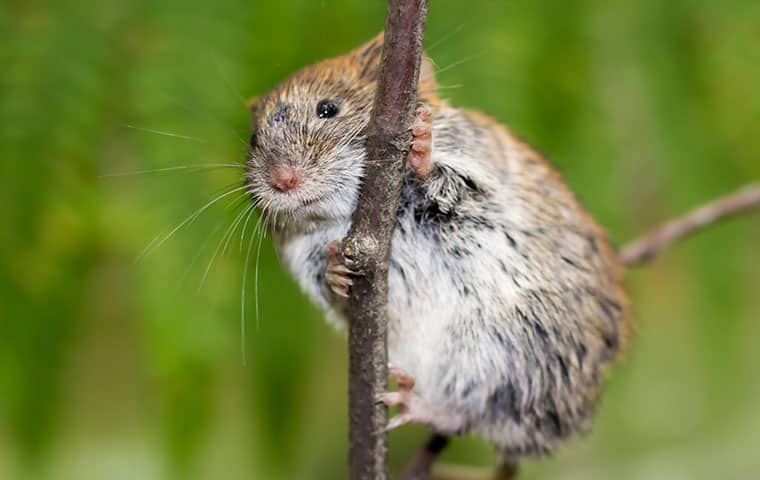
Voles
What are voles?
Voles are small rodents related to gophers and rats. Voles are commonly called field mice or meadow mice. Voles are larger and fluffier than the average house mouse and grow to a length of four to eight inches. Their body shape is rather short and stocky for their size. Voles in the Aspen, CO area are usually gray to light brown in color with long, hairless tails. As a recap, that makes them about half again bigger than a mouse, but half the size of a wood rat. Voles also have faces that are not as narrow as a mouse or rat with small protruding eyes.
Are voles dangerous?
While not a direct threat to humans, voles are some of the most destructive lawn pests that crop up every year in the United States, presenting a major threat to lawns, fruit trees, landscaping, and grain crops. In addition, these pests can introduce parasites onto properties when they invade and spread disease through their excrement.

Hear From Our Happy Customers
At RAM Pest Control, your satisfaction is our priority! See for yourself what our customers have to say about working with us.
-
“- Joyce G
My tech Tate does a good job, he is knowledgeable, professional, funny and kind...always thinking about my dog's safety when spraying and very good at his follow up to check on my home! Big Thank you to Ram Pest Control and Tate!
” -
“- Tyler S
Great team..very responsive and easy to work with. Explains each step of the way and what they are doing to fix the problem.
” -
“- Karna P
Very responsive and professional! I will always use these guys!!
” -
“- Richard G
This company is amazing. First, they actually answered their phone. I was able to get scheduled in 5 minutes. Nate was our technician. Very professional and knowledgeable of our snake issue. I cannot say enough good things about this company.
” -
“Very nice guy and great service.”- Stephanie F.
-
“- Techno N
Jake did a fabulous job. Very thorough and efficient. Great Job. Thanks!
” -
“- Daniela K
Great pest control company, Tate is very knowledgeable and professional!
” -
“- Daniela K
Excellent pest control company in the valley!!!
”

Why Choose RAM Pest Control?
-
Over 20 Years of Experience
-
Customer Care Focused
-
Locally Owned & Operated
-
Effective & Affordable
RAM Pest Control's Blog
Want all the latest news or updates? Browse through our blog to read our most recent posts and featured articles.




